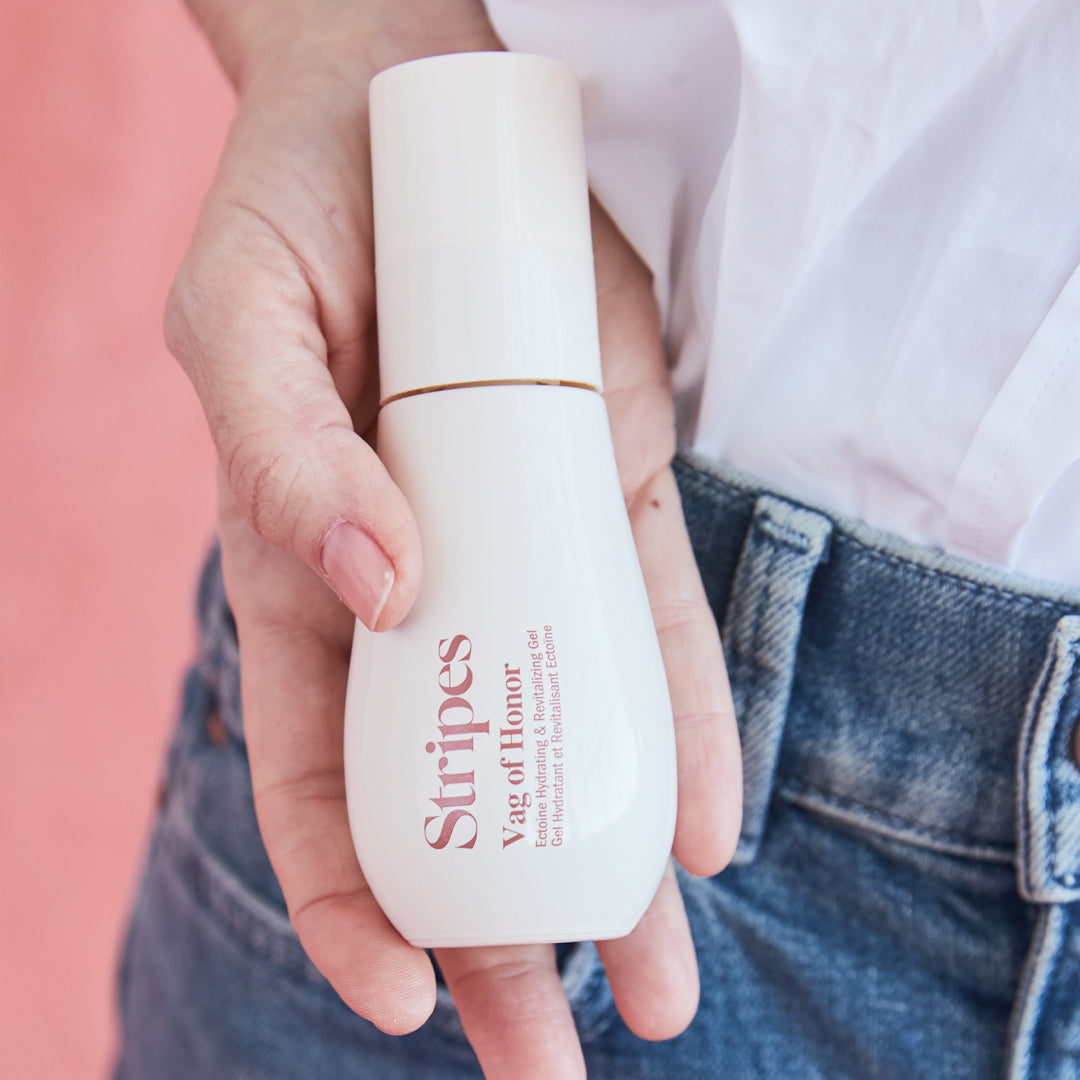When we hear the words “sleep apnea” — a sleep disorder that causes people to abruptly start and stop breathing throughout the night — many of us immediately get a picture in our head: an older man, fast asleep, snoring so loudly that he wakes up everyone in the house (and possibly the neighbors’ dogs).
But in reality, women suffer from sleep apnea, too — and because our symptoms can look very different from men’s (and our doctors might not think to check for them at all), we can miss out on treatment, increasing our risk factors for a whole host of health issues.
Almost 20 percent of women experience sleep apnea in their lifetimes, with the majority developing it during menopause. According to one 2017 study, for every year after we enter perimenopause, our risk of developing sleep apnea increases 4 percent. But the disorder can present differently for women: One study found that almost 40 percent of women with sleep apnea didn’t snore or have a partner witness them stop breathing, which is the classic sleep apnea scenario among men. Because of this, roughly 90 percent of women with sleep apnea don’t know they have it. And untreated sleep apnea can lead to more than just disrupted sleep.
How are sleep apnea symptoms different for women?
Though sleep apnea takes several forms, the most common, obstructive sleep apnea (OSA), occurs when the muscles of the throat relax while sleeping, narrowing, or completely blocking the sufferer’s airway and breathing, leading to a lack of oxygen to the body and, often, to the sufferer waking up.
According to Dr. Abhinav Singh, M.D., FAASM, medical review expert at SleepFoundation.org and medical director of the Indiana Sleep Center, women’s sleep apnea symptoms are often different and less severe than men’s.
“Unlike men who have more snoring, choking and gasping,” says Singh, “women present with less pinpoint symptoms, like poor sleep, restless sleep, insomnia, tiredness, fatigue , and sleepiness in the daytime.” Though a woman with sleep apnea may snore or display other “classic” sleep apnea symptoms, she may also present symptoms more commonly associated with psychologically based forms of insomnia. Some doctors also report that while some women with sleep apnea snore, they may be reluctant to admit it, as snoring is often considered a “masculine” trait.
And while age increases men’s sleep apnea risk, women “see a sharp increase around and after menopause,” says Singh. “Hormonal impact on sleep and breathing is felt to be involved.”
There hasn’t been a definitive study on the relationship between hormones and sleep apnea in women, but some research has suggested that drops in estrogen and progesterone may be tied to an increased incidence of the disorder, due to hormonal changes to body fat distribution, or because progesterone is a respiratory stimulant. But no matter the cause, sleep apnea is a real risk during menopause — and one that not all our doctors are aware of.
What are the risks of untreated sleep apnea?
First and foremost, sleep apnea will keep you from getting a decent night’s rest. The stopping and starting of the breath typically wakes the sufferer, leading to disturbed sleep and all the daytime problems that can create, including fatigue, difficulty focusing, and sleepiness.
But sleep apnea presents more risks than just feeling cranky the next morning. Men and women with sleep apnea both have increased risks of high blood pressure (almost half of sleep apnea sufferers may experience hypertension) and diabetes. People with severe sleep apnea are also at increased risk for stroke, heart failure, and coronary artery disease; by some estimations, sleep apnea increases the risk of heart failure by 140 percent.
In addition to physical concerns, says Singh, women with sleep apnea “may be at higher risk for anxiety, depression, and mental health conditions,” and our GPs and mental health professionals may not think to check for sleep apnea as a cause.
Half of women in menopause experience insomnia , and many of us assume it’s a part of life. But if you’re experiencing restless sleep, don’t assume it’s just stress or hormones — talk to your doctor about getting tested for sleep apnea. Sleep apnea testing may involve a home sleep test or overnight testing at a sleep center.
Based on the results of your test, your doctor may recommend a variety of effective treatments — including oral appliances for mild to moderate apnea, and CPAP machines for moderate and severe apnea — which will lower your risk of associated health problems and help you get a good night’s sleep (for real).
By Gabrielle Moss
Gabrielle Moss is the editor at Stripes. She's the author of Paperback Crush: The Totally Radical History of '80s and '90s Teen Fiction. Her work has appeared in the New Yorker, Slate, GQ, Buzzfeed, Marie Claire and elsewhere.










